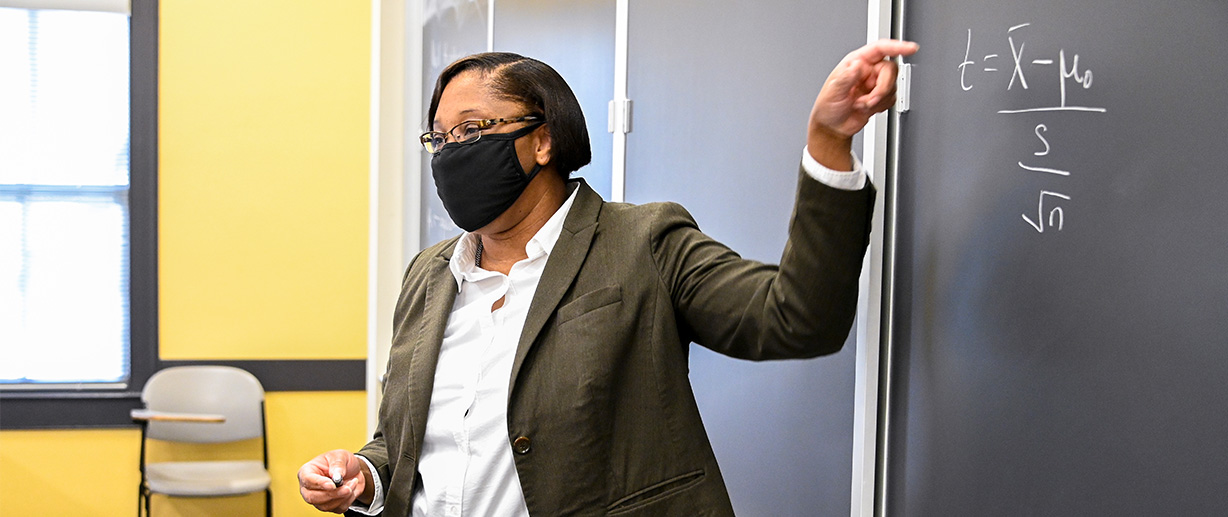While many across the globe continue to monitor COVID-19 and its variants, Dr. Deidra Coleman and five Wofford College students have spent time studying how statistical research can detect future outbreaks of diseases.
Their work is being supported as a part of a program of the Mathematical Association of America (MAA) funded by a National Science Foundation (NSF) grant.
Coleman, assistant professor of mathematics at Wofford, and students used datasets compiled to enable testing of emerging methodologies based on breast cancer mortality in the northeastern United States to gauge how Bayesian false discovery control in large scale spatial analysis multiple testing could detect outbreaks sooner.
“We’re trying to capture if there’s an occurrence of a disease that we’re not aware of,” Coleman says.
According to Coleman, healthcare facilities often use spatial scan statistics analyses for multiple testing to monitor potential disease outbreaks. Spatial analysis multiple testing looks at how location and health are related and combines public health and geographic information systems to access hazards from environmental exposure. The goal of using the Bayesian false discovery control in large-scale spatial multiple testing is to further reduce false positives.
Coleman and the students spent seven weeks doing research over the summer. They’re looking forward to sharing their research findings.
“We worked a lot on a paper, and it’s in really good shape,” says Coleman, who said they are considering submitting the paper to the Journal of Young Investigators. “We’ve also identified places to discuss our work.”
The Mathematical Association of America’s MathFest 2022 is one of the conferences they’ve discussed presenting their findings.
Coleman says the team is exploring other possibilities for using the methodology to monitor health, including the mental health climate on a campus.
Jaime Bustos ’25 was able to participate in the research as an incoming student at Wofford. Bustos, who is from Lyman, South Carolina, plans to major in physics and computer science.
“I am looking forward to more research, not just at Wofford,” Bustos says. “This experience nudged me in the direction of doing further research in academia. And if not academia, researching in the real world to solve real-world problems.”
Juan Garcia ’23, a computer science and mathematics major from Lyman, South Carolina; Kayla Means ’23, a chemistry major from Jonesville, South Carolina; Godwins Tuyishime ’24, a biology major from North Charleston, South Carolina; and Estefani Santiago-Gatica ’23, a computer science major from Kannapolis, North Carolina, also participated in the research.
